Ocean literacy is an understanding of the ocean’s influence on us and our influence on the ocean – and it empowers communities to communicate meaningfully about the ocean and make informed decisions about the ocean and its resources.
This need for ocean literacy is increasing in Australia and abroad as our oceans are changing, and researchers are calling for a national strategy to safeguard the ocean and its ecosystems.
In a study published in Oceans and Society researchers from University of Tasmania’s Centre for Marine Socioecology (CMS) and Institute for Marine and Antarctic Studies (IMAS), with colleagues from across Australia, outline a roadmap to advance ocean literacy for ocean sustainability.
Read more from the UTAS News Room here: Creating connections: ocean literacy for ocean sustainability | University of Tasmania
Read the article here:
Kelly R, Francis P, Shellock RJ, Andrews S, Arthur B, Birkmanis CA, Breidahl H, Buxton L, Chambers J, Church E, Condie C, Croft F, Freitas C, Hurley S, Jateff E, Le Busque B, Marshall J, O’Brien A, Pecl GT, Torre-Williams L, Volzke S & Waters Y (2025). Ocean Literacy for Ocean Sustainability: Reflections From Australia. Ocean and Society, 2. https://doi.org/10.17645/oas.9797
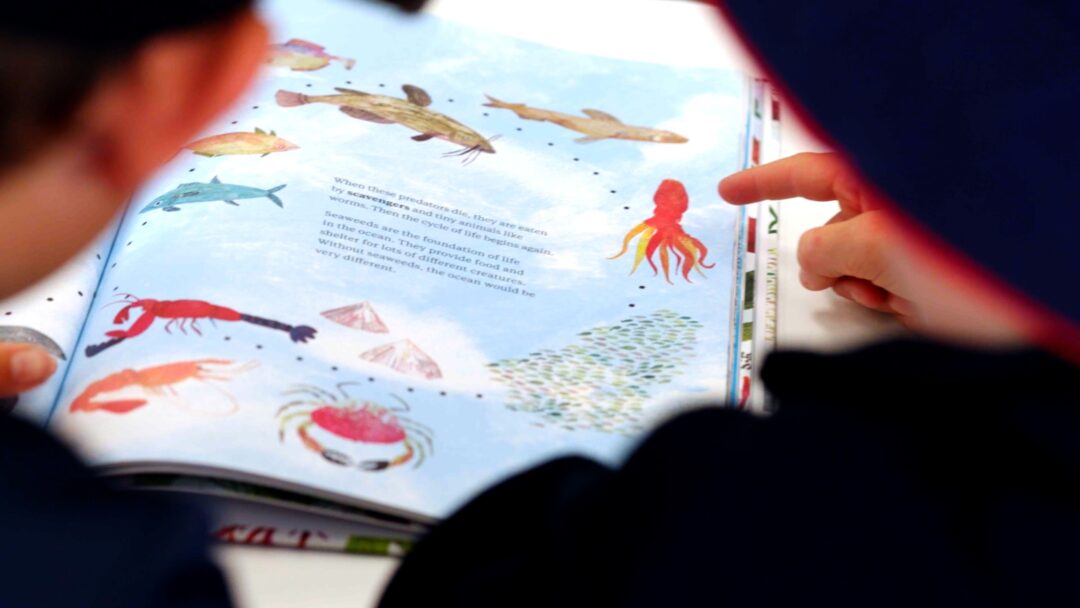
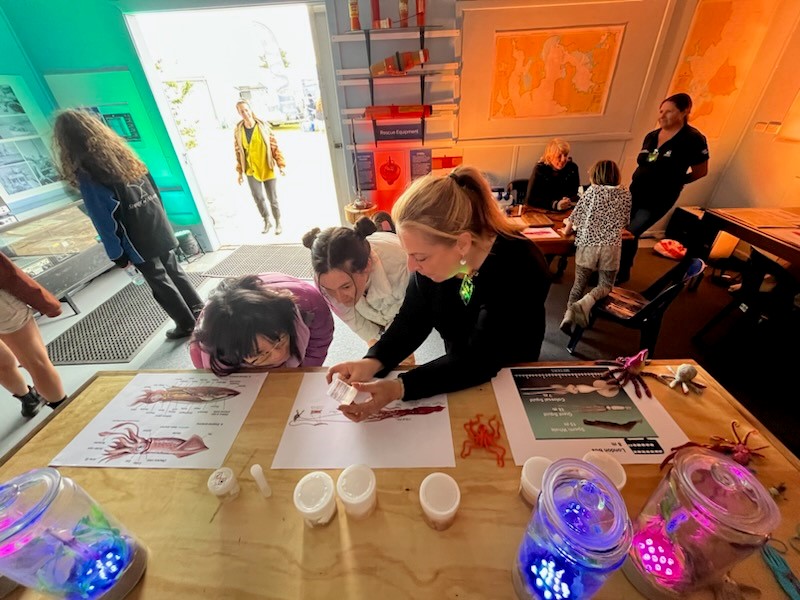
CMS Director Prof Gretta Pecl recently co-authored a correspondence published in Nature Ecology & Evolution, titled "Six actions for ecologists in times of planetary crisis".
As the title suggests, the article calls on the ecological community to consider six actions that could drive meaningful change.
Read the article here:
Pettorelli N, Gaston KJ, Barlow J, Araujo MB, Bustamante M, Chown SL, Diele-Viegas LM, Laurance WF, Lees AC, Melo FPL, Milner-Gulland EJ, Pecl GT & Sousa-Pinto I (2025). Six actions for ecologists in times of planetary crisis. Nature Ecology & Evolution. https://doi.org/10.1038/s41559-025-02759-8
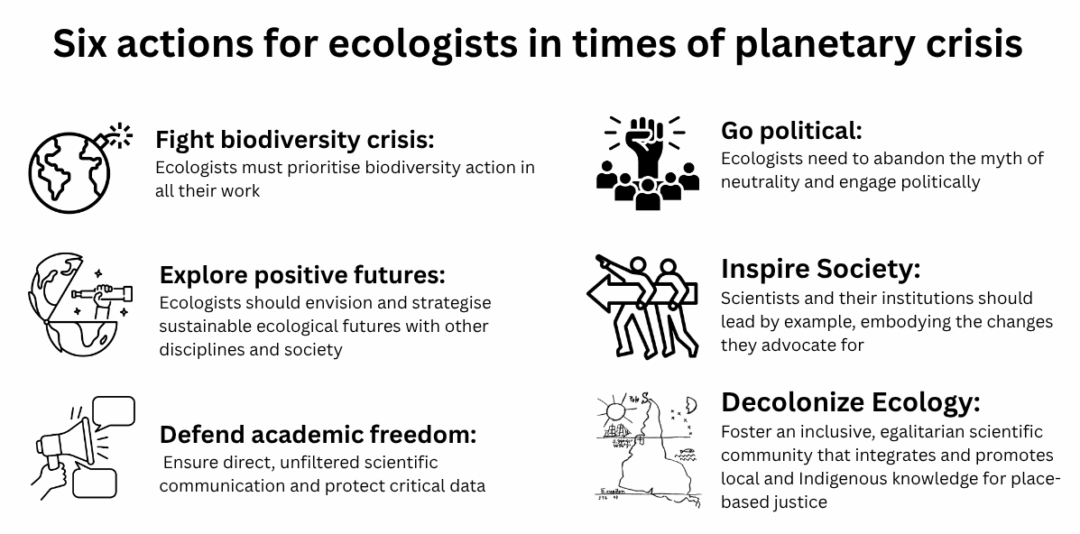
CMS Member Dean Greeno recently wrote an article for Garland Magazine titled “A Driftwood Testament”, about his life, artwork, and continuing his ancestor’s practice of using dead trees as memorials.
Excerpt: “In ancient times, our ancestors would place the dead in hollow trees, covering them so their essences could merge with the tree and pass on knowledge and spirit. Sculpting with driftwood, in a way, is an extension of that practice. Pieces of trees that have grown, lived, and died travel through the rivers, creeks, and oceans. When I gather these pieces, I am continuing the story they began. But to do so takes a trained eye.”
Dean recently won the Telstra NATSIAA People’s Choice Award for his artwork “tunapri milaythina muka, to know Sea Country through making”
Article link: https://garlandmag.com/article/the-driftwood-story/
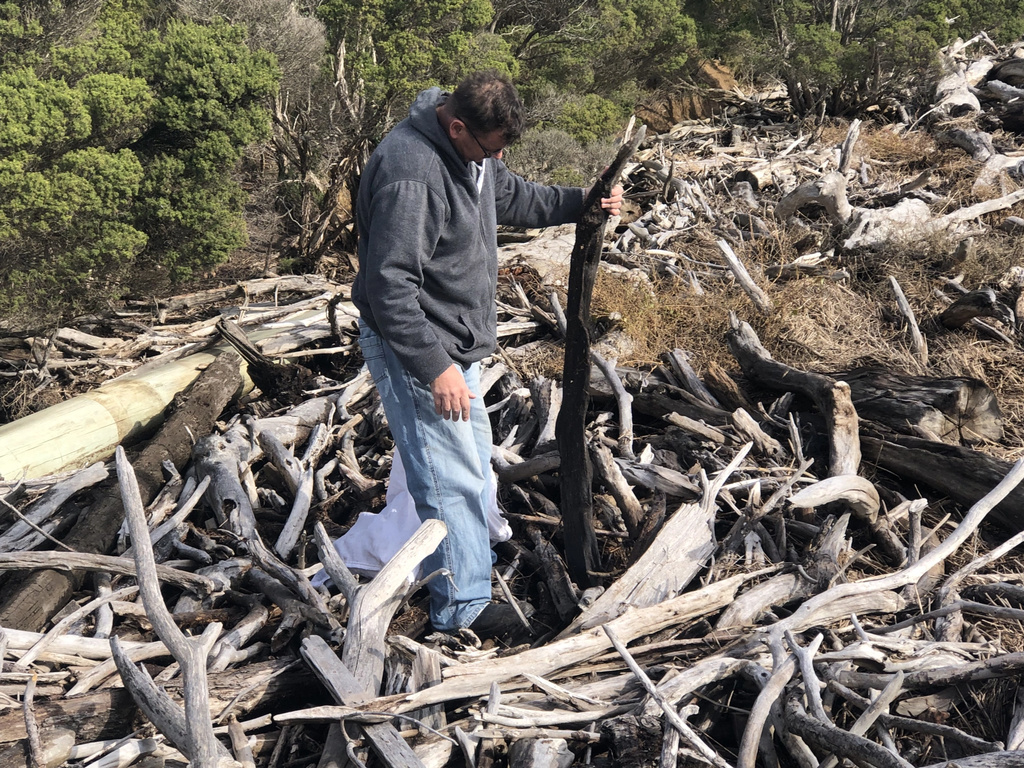
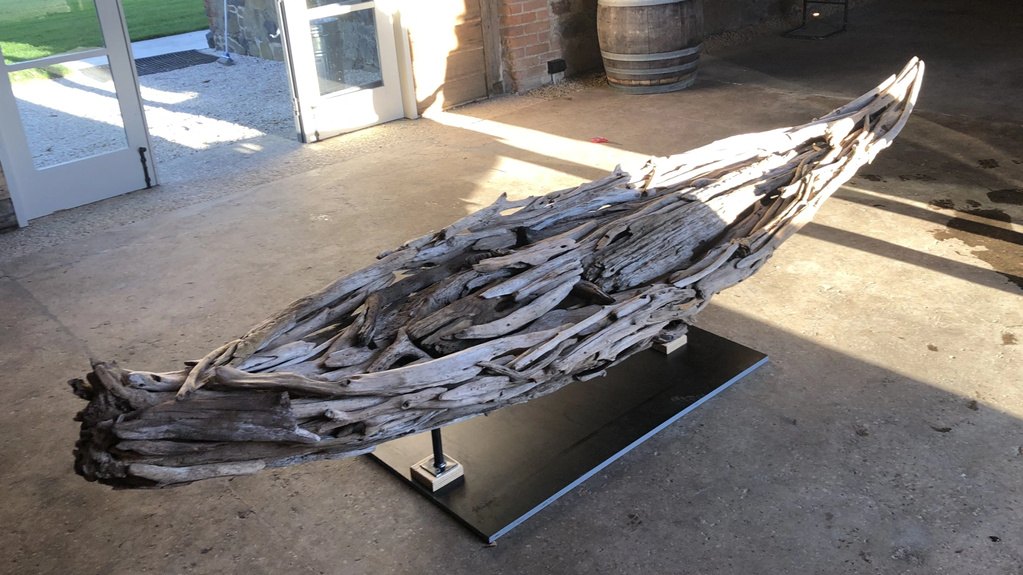
Each year the Australian Marine Sciences Association proudly presents awards to individuals recognising outstanding contributions to marine science in Australia.
Mibu Fischer, won the AMSA 2025 Melissa George Excellence in Sea Country Award, which recognises the outstanding contribution or leadership potential of an Indigenous marine scientist, ranger, communicator, or educator to the advancement of marine science and knowledge in Australia.
Dr Scott Bennett, won the AMSA 2025 Emerging Leader in Marine Science Award, in recognition of their outstanding research and academic achievements in marine science and the translation of their research for engagement outside of academia and mentoring of other young scientists.
Read more here: https://www.amsa.asn.au/amsa-home/awards/
CMS student Debbi Delaney was interviewed for a recent article “Unique King Island industry under the microscope” by Tasmanian Country, published on 31 May 2025.
The interview describes how Deb's work could prove vital for understanding the future of the island’s marine plant fishery in the face of environmental change and shifting global markets.
Read the article here: https://www.tasmaniancountry.com/newspaper/tasmanian-country/unique-king-island-industry-under-microscope
A new paper co-authored by CMS Director Prof Gretta Pecl has been released, as an output from a workshop in Florida in 2023, after the third international Species on the Move conference (a conference series Gretta started in Hobart in 2016). Following the 2023 conference, a focused workshop sparked a key realization: while we’ve long known species are on the move, we’ve vastly underappreciated how multidimensional that movement might be.
To capture this complexity, the authors argue for a paradigm shift: one that recognizes that species are moving not just in one direction, but across multiple dimensions of space, time, and thermal scale. This recent synthesis outlines a conceptual framework that reflects this – highlighting how species can and do respond to directional climate change along intertwined spatial and temporal gradients, from the macro to the micro.
The next Species on the Move conference will be held in Taiwan in 2026.
Read more here: Reimagining species on the move | The 3D lab
See the publication here:
Fredston AL, Tingley MW, Neate-Clegg MHC, Evans LJ, Antao LH, Ban NC, Chen IC, Chen YW, Comte L, Edwards DP, Evengard B, Fadrique B, Falkeis SH, Guralnick R, Klinges DH, Lembrechts JJ, Lenoir J, Palacios-Abrantes J, Pauchard A, Pecl GT, Pinsky ML, Senior RA, Smith JE, Soifer LG, Sunday JM, Tape KD, Washam P & Scheffers BR (2025). Reimagining species on the move across space and time. Trends in Ecology & Evolution. https://doi.org/10.1016/j.tree.2025.03.015
As climate impacts intensify in our oceans, novel marine climate interventions—from coral restoration to ocean alkalinity enhancement—are rapidly emerging. But are we ready to govern them responsibly? New studies led by Assoc Prof Emily Ogier (CMS/IMAS) and Dr Sarah Lawless, and with co-authors including CMS Director Prof Gretta Pecl and CMS members Dr Georgina Gurney, Dr Cayne Layton, Dr Kirsty Nash and Dr Phillipa Cohen (Nature Climate Change & Cell Reports Sustainability, 2025) reveal a critical pacing problem: the speed of innovation is outstripping our governance systems, risking unintended ecological, social, and cultural consequences.
Key Insights:
What can we do?
Researchers
Governments
Funders
Practitioners
These findings are a call to action: to ensure marine climate interventions are not only ecologically effective but also socially just and ethically sound. Let’s build ocean futures that are resilient, inclusive, and responsible!
Read more:
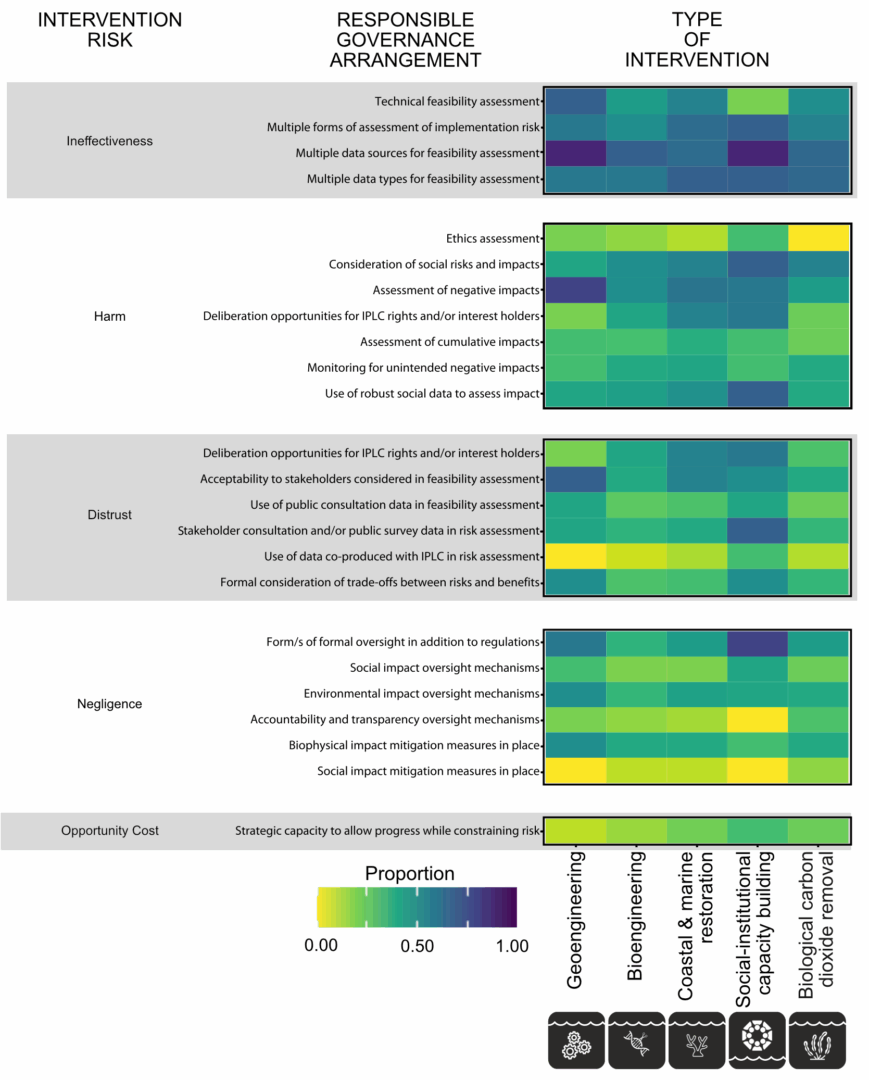
In April, the CMS ran its third Interdisciplinary School. This one-week intensive course is a unique model for interdisciplinary training and socially engaged education and has an applied, real-world focus.

The course was led by Rachel Kelly, and supported by Georgina Gurney, the School’s Equity Specialist Chair, and Gretta Pecl, CMS Director. It brought together nearly 20 participants from different academic disciplines and backgrounds. These participants included students from CMS and UTAS, as well as students and professionals from external organisations including from interstate. The diverse cohort contributed to a rich, interdisciplinary learning environment that emphasised collaboration and inclusivity.
At the start of the week, students were introduced to real-world challenges presented by stakeholders from Huon Valley Council, NRE Recreational Fisheries, and the Tasmanian diving community. The stakeholders posed problems they were currently facing, and students were tasked with working collaboratively in multidisciplinary teams to develop innovative and feasible project proposals aimed at addressing these problems. At the end of the week, students presented their project proposals to a panel of stakeholders and CMS ECRs and senior researchers.

The lectures and sessions that delivered by CMS researchers over the week supported the student work. The interactive panel discussions offered students opportunity to engage with CMS researchers, ask questions, and reflect on the range of perspectives being discussed.
The students’ feedback was overwhelmingly positive, in particular they highlighted the opportunity to work on real-world problems, and the chance to collaborate across disciplines.
The Centre for Marine Socioecology is pleased to announce that the CMS Annual Report 2024 is now ready to read!
This report provides an outline of the research, knowledge sharing and other activities undertaken by the Centre for Marine Socioecology in 2024. Our tenth year has been a big one and we are proud of 2024 as another full year of activity. From collaborative research that led to nearly 100 papers, to sharing our experiences via invited presentations, conference sessions, and engagement with the public and our stakeholders. The breadth and diversity of CMS activities and the level of achievement described in this annual report underlines that the Centre remains a strong and vibrant nexus for high quality interdisciplinary and transdisciplinary research and training.
Please view/download the report below:
This recent report summarises the results of the first-ever assessment of the annual expenditure required to meet the Australian Government’s commitment to prevent extinctions in marine environments.
The research was undertaken by a team of environmental scientists at the University of Melbourne’s Melbourne Biodiversity Institute, including CMS Director Prof Gretta Pecl as a contributing author. The research was supported by the Australian Marine Conservation Society and Biodiversity Council.
Read the report here: The cost of preventing extinctions in Australia’s marine environment | Biodiversity Council Australia
How to cite this material:
Biodiversity Council and Australian Marine Conservation Society (2025). The cost of preventing extinctions in Australia’s marine environment. March 2025. Report. Melbourne, Australia.